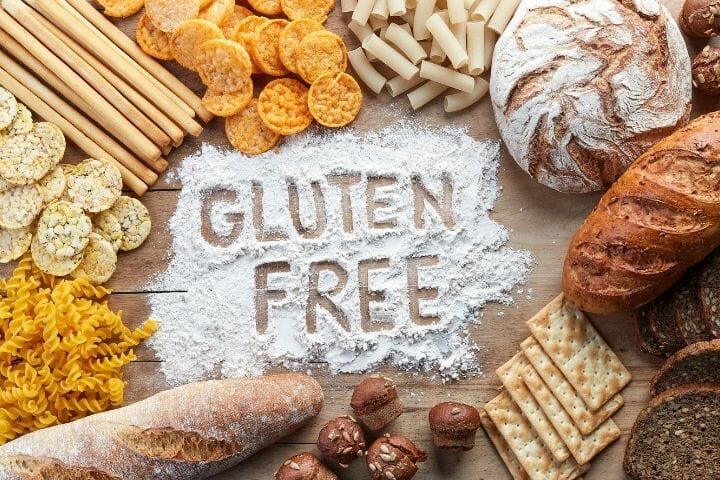Meta: Let us look at the foods to eat and avoid for a healthy heart that will help reduce the risk of any heart-related disease. Read on to know more.
Contents
The leading cause of death among people in the US is heart disease. Most adults suffer from some of the other heart-related diseases due to lifestyle changes. But according to some studies, almost 80% of heart disease can be prevented by staying active and eating healthy.

Following professional advice and eating a balanced diet helps lead a better life. Having a healthy diet that includes fruits, vegetables, whole grains, and choosing fat-free products helps reduce the risk of any heart disease, diabetes, and cholesterol and helps you maintain your weight.
A healthy diet also means replacing food that includes trans fats, sugar, and too much salt. Thus avoiding certain types of fats will benefit your heart and overall health.
It is not too late or too early to make changes in your lifestyle and start eating healthy. Let us look at what foods to eat and avoid for a healthy heart:
- Heart-healthy shopping Tips.
- Foods filled with Trans fats to avoid.
- Impact of too much sugar and carbs on the heart.
- Impact of carbohydrates on the heart.
- Gluten-free diets
- Healthy smoothies
- Can beef prevent muscle loss among seniors?
Foods To Eat For A Healthy Heart?
Some changes in your diet will help you lead a healthy lifestyle. What you eat impacts your overall health. Try to include the following foods in your diet that will benefit your heart and is budget-friendly.
Heart-Healthy Shopping List
Fruits And Vegetables
One of the best sources of getting vitamins and minerals is eating fruits and vegetables. Having plant-based foods will help prevent any heart-related diseases. You can have either fresh, frozen, or dry. Try to have at least five portions of these in a day. It will help maintain a healthy weight and keep you full for long as these foods are low on calories.
You can buy:
- Vegetables like carrots, cabbage, tomatoes.
- Green veggies like lettuce, spinach, and kale.
- Canned vegetables have low sodium.
- Frozen vegetables like cauliflower or broccoli.
- Fresh fruits like apples, bananas, oranges, pears, and other seasonal fruits.
- Non-sugary canned or dried fruits.

Whole Grains
Reducing the number of refined grains from your diet and eating whole grains help protect you from heart-related diseases. It is an excellent source of fiber and helps improve cholesterol levels and blood pressure. You can include
- Whole-grain bread, tortillas, and muffins.
- Brown rice, quinoa, and oats.
- Whole-wheat pasta.
- Other whole-grain cereals are not sugary.
Proteins
Including proteins that are low in fat also benefits your overall health. Try including oily fish containing omega-3 fatty acids as it helps lower the cholesterol level and is suitable for your heart. This includes herring, sardines, salmon, mackerel, and other cold-water fish. You can include:
- Variety of beans and peas.
- Eggs
- Unsalted seeds and nuts.
- Pork and beef
- Seafood like fish and shellfish.
- Tofu
- Skinless poultry.
Nuts And Seeds
You should always include a small portion of nuts (walnuts, hazelnuts, almonds, and cashews) and seeds( pumpkin seeds, sunflower seeds, and chia seeds) in your diet daily. They are very nutritious and energy-dense. However, consume them as per your calorie intake.
Fats And Oils
To have a healthy heart, it is essential to have the correct type of fat in your diet. For this, you need to reduce the amount of saturated fat and trans fats. However, almost all fat and oils have high calories. So it is better to use it in small amounts. You can have unsaturated fats such as seafood, avocados, and oils.
What Is Trans Food?
Trans food is a type of fat that increases cholesterol levels and is bad for the heart. The more trans fat you consume, the more risk it involves. Trans fats are very unhealthy, and now most manufacturers cannot add trans fats in food and beverages.
Foods Filled With Trans-Fat To Avoid
Fried Foods
Most fried foods have trans fat in them. This includes fish sticks, onion rings, french fries, and mozzarella sticks. Though this depends on the type of oil, they are cooked in. You should always have them in moderation or avoid having such foods.

Meat And Dairy
Any meat and dairy products have a small amount of natural trans fats in them. It is better to reduce your intake or start eating lean meats and low-fat dairy products.
Margarine
Margarine is known as a healthy fat and is an alternative to butter. But it contains at least 2 grams of trans fats. However, there are a lot of options in the market that have trans-fat-free options.
Non-Dairy Coffee Whiteners
Having non-dairy coffee creamer in your coffee adds an amount of trans-fat to your diet. A lot of non-dairy coffee creamers available in the market have trans fats. To know whether your coffee creamer contains trans fat, it is better to check its ingredients and look at what type of oil it contains.
Impact Of Too Much Sugar On The Heart
Many people in the US are in the habit of having quick, processed food that contains too much sugar. However, consuming too much sugar is one of the causes of weight gain and heart disease.
As per some studies, food containing high sugar content leads to increased weight gain, high blood pressure, inflammation, and triglyceride. These all lead to heart disease.
People who consume 17% to 21% calories from sugar intake are at greater risk of dying from heart-related diseases like heart failure, attack, and strokes. Thus it is better to have less sugar and reduce the risk of heart disease.
Impact Of Carbohydrates On The Heart
Carbohydrates, fats, and proteins all add up your calories. Thus balancing these calories well will help us maintain weight and stay healthy. There are different types of carbs present in food. They can be either simple or complex depending on the food ingredients and chemical structure.

However, the more carbohydrates you consume, the more risk of heart disease is involved. As per Healthline, carbs can have a worse impact on heart health than fats.
So when it comes to carbs, limit foods processed from refined sugars as they may have less nutrition. You can get good cards by eating more fruits and vegetables and eating whole grains.
Seniors Go Gluten Free
The caregivers of the senior citizens often provide them with a healthy diet. This also means they keep them away from foods that are not healthy for older adults. With the increase in health awareness among people, people and primarily seniors, are going for gluten-free diets.
A lot of people in America have been diagnosed with Celiac Disease. This disease affects the small intestine of the body by absorbing the food people eat. People may have symptoms like bloating, gas, stomach pain, diarrhea, or even weight loss if they consume gluten food.
Some may even have gluten sensitivity. People suffering from such diseases are advised to have a gluten-free meal. Older people need to change their eating habits and have a gluten-free diet.

Gluten is mainly found in grains like wheat, rye, barley, or oats. It is also found in certain medications and other products we may be using, like lipstick. Older people are advised to avoid these foods and have a balanced and healthy meal with soy, nuts, quinoa, potatoes, rice, and corn.
Answers To Frequently Asked Questions
What Are Some Smoothies For A Healthy Heart?
Having shakes or smoothies benefits your overall health and keeps your heart healthy. Let us look at some of the healthy smoothie recipes.
Healthy Smoothies Recipes
- Straberry-Kiwi Smoothie. Having a fiber-rich diet helps keep your heart healthy and prevents cholesterol. This smoothie has good fiber. Mix one ripe banana, sliced kiwi, five frozen strawberries, 1 cup apple juice, and a spoonful of honey. Blend it in a mixture, and the smoothie is ready.
- Watermelon Smoothie. Having watermelon smoothies is an excellent treat for your tooth. For this, cut down one watermelon and remove all the seeds, add ¼ cup fat-free milk and add some ice if you want. Blend it in a mixer until smooth. Watermelon is a good source of vitamin C and helps regular heart health.

Can Beef Prevent Muscle Loss Among Seniors?
As people age, they lose muscle and body strength. However, muscle loss among people may vary. The loss of strength ultimately leads to the loss of mobility and independence. Older people, at some point in time, will require assistance and care. However, having a protein intact and healthy diet may help maintain a healthy body.
As per some studies, people who consume protein-rich food that includes beef, pork, chicken, and fish help their muscles deteriorate. Thus consuming a moderate amount of proteins helps maintain muscles, thus keeping the overall health among seniors.
Ultimately, You Are What You Eat!!
Including whole grains, vegetables, fruits, and oily fish in your diet will benefit and keep your heart healthy. Try avoiding foods that contain too much sugar, saturated fats, and other processed foods.

Though there is no cure for heart-related diseases, you can lower your blood pressure, cholesterol and improve your overall health by having a healthy and balanced diet. Thus, reducing the risk of heart attacks, stroke, or any other heart-related diseases.
